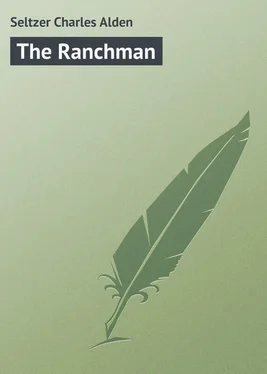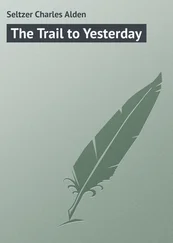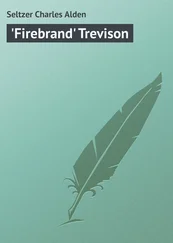Charles Seltzer - The Ranchman
Здесь есть возможность читать онлайн «Charles Seltzer - The Ranchman» — ознакомительный отрывок электронной книги совершенно бесплатно, а после прочтения отрывка купить полную версию. В некоторых случаях можно слушать аудио, скачать через торрент в формате fb2 и присутствует краткое содержание. Жанр: foreign_prose, на английском языке. Описание произведения, (предисловие) а так же отзывы посетителей доступны на портале библиотеки ЛибКат.
- Название:The Ranchman
- Автор:
- Жанр:
- Год:неизвестен
- ISBN:нет данных
- Рейтинг книги:3 / 5. Голосов: 1
-
Избранное:Добавить в избранное
- Отзывы:
-
Ваша оценка:
- 60
- 1
- 2
- 3
- 4
- 5
The Ranchman: краткое содержание, описание и аннотация
Предлагаем к чтению аннотацию, описание, краткое содержание или предисловие (зависит от того, что написал сам автор книги «The Ranchman»). Если вы не нашли необходимую информацию о книге — напишите в комментариях, мы постараемся отыскать её.
The Ranchman — читать онлайн ознакомительный отрывок
Ниже представлен текст книги, разбитый по страницам. Система сохранения места последней прочитанной страницы, позволяет с удобством читать онлайн бесплатно книгу «The Ranchman», без необходимости каждый раз заново искать на чём Вы остановились. Поставьте закладку, и сможете в любой момент перейти на страницу, на которой закончили чтение.
Интервал:
Закладка:
Charles Alden Seltzer
The Ranchman
CHAPTER I – CONCERNING DAWES
The air in the Pullman was hot and, despite the mechanical contrivances built into the coach to prevent such a contingency, the dust from the right-of-way persisted in filtering through crevices.
Even the electric fans futilely combated the heat; their droning hum bespoke terrific revolutions which did not materially lessen the discomfort of the occupants of the coach; and the dry, dead dust of the desert, the glare of a white-hot sun, the continuing panorama of waste land, rolling past the car windows, afforded not one cool vista to assuage the torture of travel.
For hours after leaving Kansas City, several of the passengers had diligently gazed out of the windows. But when they had passed the vast grass plains and had entered the desert, where their eyes met nothing but endless stretches of feathery alkali dust, beds of dead lava, and clumps of cacti with thorny spire and spatula blade defiantly upthrust as though in mockery of all life – the passengers drew the shades and settled down in their seats to endure the discomfort of it all.
A blasé tourist forward reclined in one seat and rested his legs on another. From under the peak of a cap pulled well down over his eyes he smiled cynically at his fellow-passengers, noting the various manifestations of their discomfort. The tourist was a transcontinental traveler of note and he had few expectations. It amused him to watch those who had.
A girl of about twenty, seated midway in the coach to the left of the tourist, had been an intent watcher of the desert. With the covert eye of the tourist upon her she stiffened, stared sharply out of the window, then drew back, shuddering, a queer pallor on her face.
“She’s seen something unpleasant,” mused the tourist. “A heap of bleached bones – which would be the skeleton of a steer; or a rattlesnake – or most anything. She’s got nerves.”
One passenger in the car had no nerves – of that the tourist was convinced. The tourist had observed him closely, and the tourist was a judge of men. The nerveless one was a young man who sat in a rear seat staring intently out into the inferno of heat and sand, apparently absorbed in his thoughts and unaware of any physical discomfort.
“Young – about twenty-seven or twenty-eight – maybe thirty,” mused the tourist; “but an old-timer in this country. I wised up to him when he got aboard at Kansas City. Been a miner in his time – or a cow-puncher. I’d hate to cross him.”
Among the other passengers were two who attracted the attention of the tourist. They occupied the seat in front of the young man.
One of the two, who sat nearest the window, was not much older than the young man occupying the seat behind him. The tourist guessed his age to be around thirty-five or thirty-six. He was big, almost massive, and had lived well – as the slightly corpulent stomach revealed. Despite that, however, he was in good physical condition, for his cheeks glowed with good healthy color under the blue-black sheen of his fresh-shaved beard; there was a snapping twinkle in his black eyes, which were penetrating and steady; and there was a quiet confidence in his manner which told that he knew and appreciated himself. He was handsome in a heavy, sensuous fashion, and his coal-black hair, close-cropped and wavy, gave him an appearance of virility and importance that demanded a second look. The man seated beside him was undersized and ordinary-looking, with straight, iron-gray hair and a look of having taken orders all his life. The tourist set his age at fifty-five.
The girl was of the type that the tourist admired. He had seen her kind in the far corners of the world, on the thronged streets of cosmopolitan cities, in isolated sections of the world – the self-reliant, quietly confident American girl whose straight-in-the-eye glance always made a man feel impelled to respectfully remove his hat.
She was not beautiful, but she was undeniably good-looking. She was almost tall, and the ease and grace of her movements sufficed to convey to the tourist some conception of the symmetrical lines of her figure. If her features had been more regular, the girl would have been plain; but there was a slight uptilt to her nose that hinted of piquancy, denied by the quiet, steady eyes.
A brown mass of hair, which she had twisted into bulging coils and glistening waves, made the tourist wonder over her taste in that feminine art.
“She knows what becomes her,” he decided.
He knew the two men seated in front of the young man were traveling with her, for he had seen them together, with the older man patting her shoulder affectionately. But often she left them with their talk, which did not seem to interest her, while she withdrew to a distant seat to read or to gaze out of the window.
She had not seemed to notice either the man of colorless personality or the young man who occupied the seat behind her friends. If she had glanced at them at all it was with that impersonal interest one feels in the average traveler one meets anywhere.
But long ago – which, to be strictly accurate, was when he had entered the coach at Kansas City – Quinton Taylor had been interested in her. He was content, though, to conceal that interest, and not once when she chanced to look toward him did she catch him looking at her.
Taylor knew he was no man to excite the interest of women, not even when he looked his best. And he knew that in his present raiment he did not look his best. He was highly uncomfortable.
For one thing, the white, starched collar he wore irritated him, choked him, reddening his face and bulging his eyes. The starched shirt had a pernicious habit of tightly sticking to him, the seams chafing his skin.
The ready-made suit he had bought at Kansas City was too small, and he could feel his shoulders bulging through the arms of the coat, while the trousers – at the hips and the knees – were stretched until he feared the cloth would not stand the strain.
The shoes were tight, and the derby hat – he glowered humorously at it in the rack above his head and gazed longingly at the suitcase at his feet, into which he had crammed the clothing he had discarded and which he had replaced at the suggestion of his banker in Kansas City. Cowboy rigging was not uncommon to Kansas City, the banker had told him, but still – well, if a man was wealthy, and wished to make an impression, it might be wise to make the change.
Not in years had Taylor worn civilized clothing, and he was fully determined that before reaching his home town he would resume the clothing to which he was accustomed – and throw the new duds out of a window. He reddened over an imaginary picture of himself descending from the train in his newly acquired rigging to endure the humorous comments of his friends. Old Ben Mullarky, for instance, would think he had gone loco – and would tell him so. Yes, the new clothes were doomed; some ragged overland specimen of the genus “hobo” would probably find them or, if not, they would clutter up the right-of-way as the sad memento of a mistake he had made during a fit of momentary weakness.
As a matter of fact the girl had noticed Taylor. A girl will notice men, unconsciously. Sitting at her window even now, she was thinking of him.
She was not aware that she had studied him, or that she had even glanced at him. But despite her lack of interest in him she had a picture of him in mind, and her thoughts dwelt upon him.
She, too, had been aware that Taylor’s clothes did not fit him. She had noticed the bulging shoulders, the tight trousers, the shoes, squeaking with newness, when once he had passed through the car to go out upon the platform. She had noticed him screwing his neck around in the collar; she had seen him hunch his shoulders intolerantly; she had seen that the trousers were too short; that he looked like an awkward farmer or homesteader abroad on a pleasure trip, and decidedly uncomfortable in the unaccustomed attire.
Читать дальшеИнтервал:
Закладка:
Похожие книги на «The Ranchman»
Представляем Вашему вниманию похожие книги на «The Ranchman» списком для выбора. Мы отобрали схожую по названию и смыслу литературу в надежде предоставить читателям больше вариантов отыскать новые, интересные, ещё непрочитанные произведения.
Обсуждение, отзывы о книге «The Ranchman» и просто собственные мнения читателей. Оставьте ваши комментарии, напишите, что Вы думаете о произведении, его смысле или главных героях. Укажите что конкретно понравилось, а что нет, и почему Вы так считаете.












